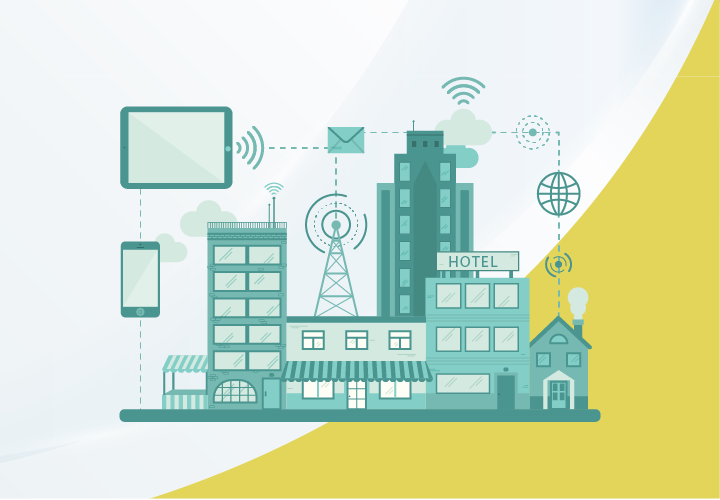Smart City Infrastructure Development Internship Program
in CIVILAbout this course
Smart City Infrastructure Development Internship Program: 6-Week Structured Learning and Experience
Introduction
Smart Cities leverage digital technologies to enhance the quality of urban life, optimize infrastructure usage, and promote sustainability. This internship program provides participants with a comprehensive understanding of smart city components, including urban planning, IoT integration, mobility, energy management, e-governance, and resilience systems.
Designed for aspiring urban planners, civil engineers, GIS analysts, and sustainability enthusiasts, this program includes hands-on mapping, system analysis, and conceptual design projects. The program culminates in a Smart Zone Proposal that brings together all learned elements into a cohesive urban development vision.
Program Highlights
Week 1: Foundations of Smart Cities
· Introduction to Smart Cities: Research and write a report on the concept of Smart Cities.
o Outcome: A 500-word report defining Smart Cities, key features, and global examples.
· Urban Challenges and Smart Solutions: Identify 5 major urban challenges and propose smart solutions.
o Outcome: A comparative table with challenges and corresponding smart interventions.
· Smart Transportation Systems: Study Intelligent Transport Systems (ITS) and write a case study on one implementation.
o Outcome: A case study document (500–700 words) with visual aids.
Week 2: Smart Infrastructure and Utilities
· IoT in Smart Cities: Create a presentation explaining how IoT devices are used in city infrastructure.
o Outcome: A 5-slide PowerPoint presentation with real-world use cases.
· Smart Energy Management: Analyze how smart grids and renewable energy are used in city planning.
o Outcome: A report with diagrams showcasing smart energy systems.
· Waste Management Technologies: Research modern smart waste collection systems.
o Outcome: A flowchart and brief explanation (300 words) on one smart waste management model.
Week 3: Water, Governance, and Planning Tools
· Water Supply and Smart Metering: Study smart water meters and their benefits in urban areas.
o Outcome: A technical brief on smart metering technologies (300–500 words).
· GIS and Urban Planning: Use GIS software (QGIS/ArcGIS) to map a small urban zone.
o Outcome: A basic map with layers showing roads, utilities, and public zones.
· Smart Governance and E-Governance: Explore digital governance models and their impact.
o Outcome: A report or infographic summarizing key services and benefits.
Week 4: Safety, Data, and Mobility
· Sustainable Infrastructure Design: Design a sustainable neighborhood block using green principles.
o Outcome: A conceptual layout sketch or CAD drawing with annotations.
· Public Safety and Surveillance Systems: Analyze how smart surveillance improves urban safety.
o Outcome: A short report with real-world statistics and benefits.
· Data Analytics in Smart Cities: Study how big data is used for city decision-making.
o Outcome: A sample dashboard design or infographic showing useful urban KPIs.
Week 5: Smart Mobility and Engagement
· Smart Parking Solutions: Research smart parking technologies and their benefits.
o Outcome: A concept note with system features and cost-benefit analysis.
· Electric Vehicle (EV) Infrastructure: Plan a basic EV charging station network for a small urban area.
o Outcome: A map and feasibility write-up (400 words).
· Urban Mobility and Last-Mile Connectivity: Explore shared mobility and last-mile solutions.
o Outcome: A report comparing traditional vs smart mobility approaches.
Week 6: Resilience, Funding, and Final Project
· Citizen Engagement Platforms: Evaluate tools used for citizen feedback and participation.
o Outcome: A review report of 2–3 platforms with suggestions.
· Smart Lighting Systems: Study adaptive lighting systems based on sensors and timers.
o Outcome: A technical sheet with system specs and potential energy savings.
· Smart City Financing Models: Research funding models for Smart City projects.
o Outcome: A comparative chart of PPPs, government schemes, and loans.
· Resilience and Disaster Management: Analyze how smart infrastructure supports emergency response.
o Outcome: A report with case studies of smart disaster response systems.
Final Project: Smart Zone Proposal
· Task: Propose a Smart Zone in your city using all elements learned.
o Outcome: A presentation (PPT + report) including maps, sketches, systems, and budget.
Expected Outcomes
By the end of this internship, participants will:
· Understand the foundational principles and applications of Smart Cities.
· Use GIS and data tools for infrastructure planning and visualization.
· Propose smart systems for mobility, energy, waste, and public safety.
· Integrate IoT and big data for smarter governance and decision-making.
· Design sustainable, citizen-friendly urban infrastructure.
· Develop a comprehensive Smart Zone proposal based on real-world needs.
Comments (0)
To gain a foundational understanding of Smart Cities by exploring their definition, characteristics, and global examples.
To identify pressing urban issues and propose smart technology-driven solutions that can address them effectively.
To understand the role and functioning of Intelligent Transport Systems (ITS) and how they optimize urban mobility.
To explore how the Internet of Things (IoT) enables smarter urban management and services.
To study the integration of smart grids, renewable energy sources, and digital monitoring systems in urban energy management.
To understand how smart technologies are improving urban waste management systems through automation, monitoring, and data analysis.
To examine the role of smart water metering in ensuring efficient water distribution, usage monitoring, and leak detection.
To develop basic Geographic Information System (GIS) mapping skills and apply them to analyze urban planning features.
To explore how digital governance platforms enhance transparency, citizen engagement, and public service delivery in Smart Cities.
To design an eco-friendly urban neighborhood layout incorporating principles of sustainability, resilience, and community well-being.
To understand how smart surveillance systems contribute to improved urban safety, crime reduction, and emergency response.
To explore how big data and analytics support informed decision-making and efficient service delivery in urban environments.
To study the impact of smart parking systems on urban mobility, congestion reduction, and driver convenience.
To design a basic network of EV charging stations and evaluate its feasibility for a small urban zone.
To analyze traditional urban transport vs emerging smart mobility and last-mile connectivity solutions.
To explore how digital tools enhance citizen participation, feedback collection, and transparency in urban governance.
To understand the design and implementation of intelligent lighting systems that optimize energy use and enhance public safety.
To explore various financial models supporting smart city infrastructure, including public and private sector involvement.
To analyze how smart city technologies enhance preparedness, response, and recovery during natural or man-made disasters.
To apply all the knowledge from previous tasks and propose a comprehensive Smart Zone integrating multiple systems.









